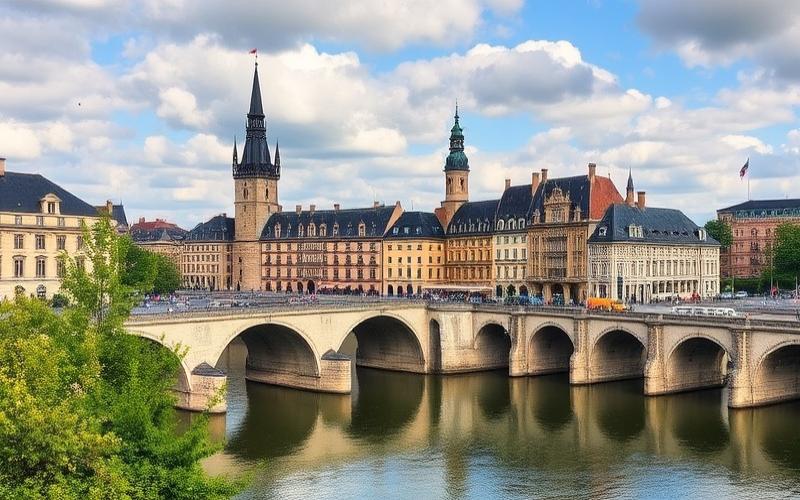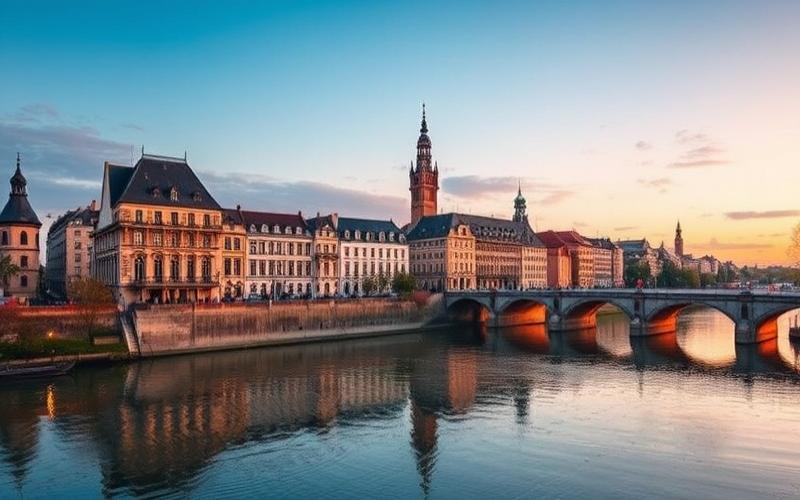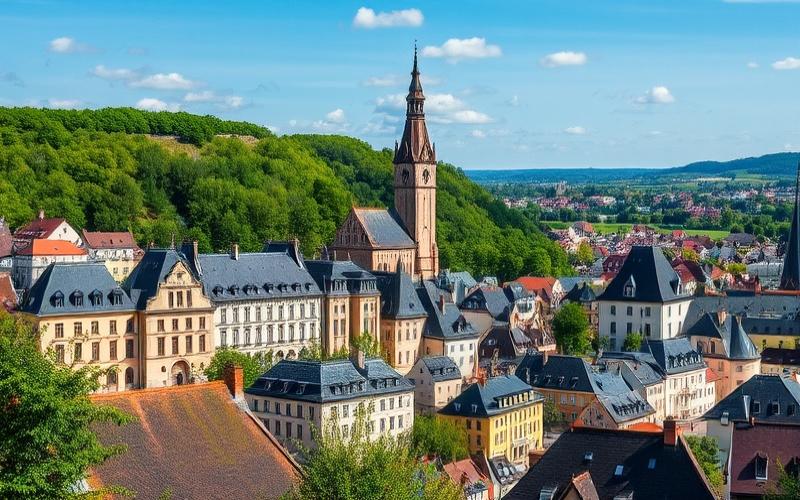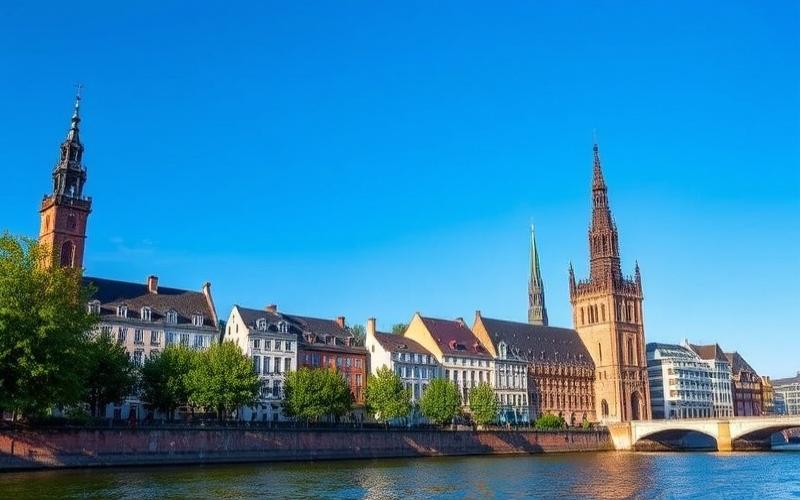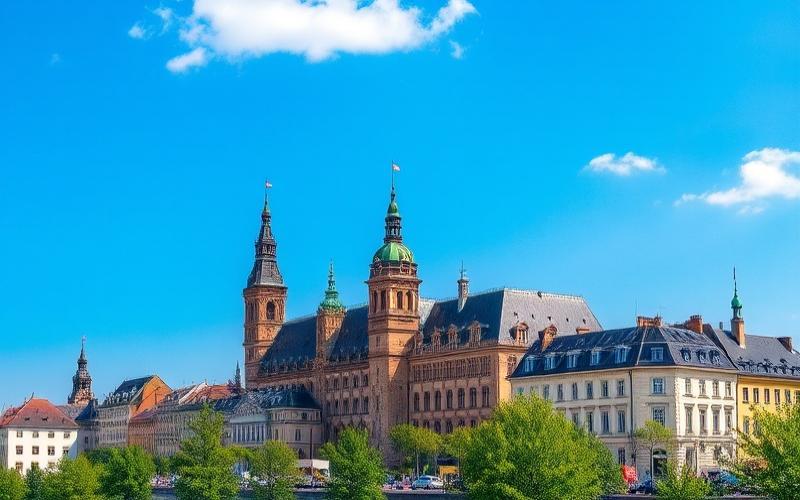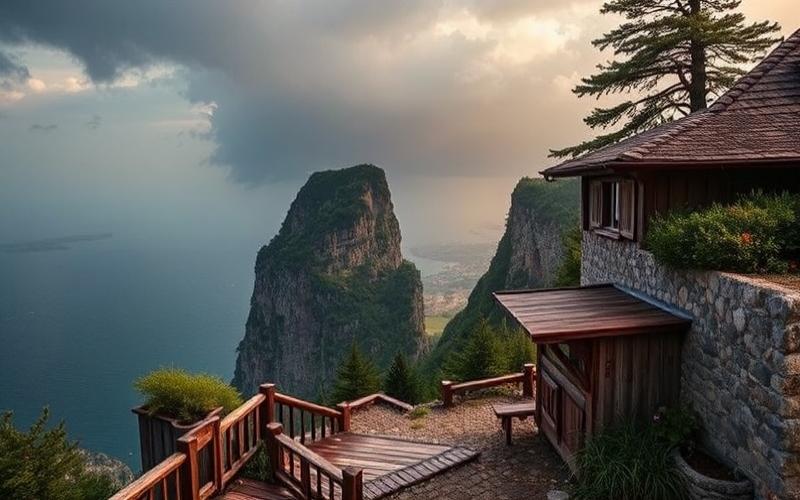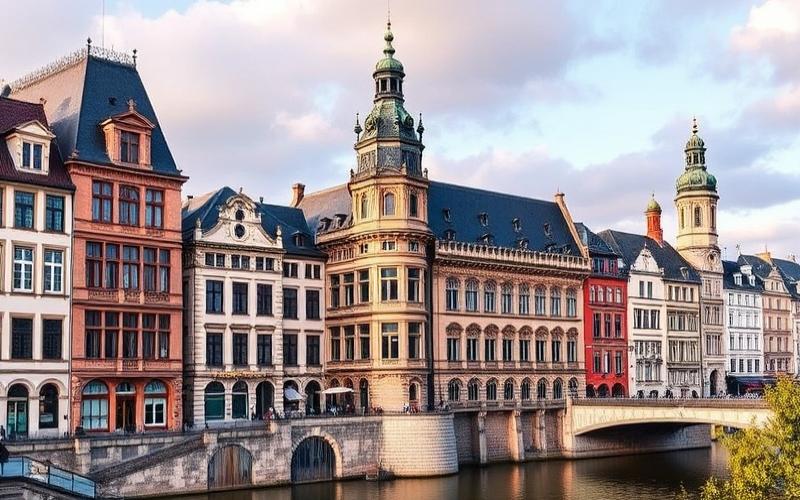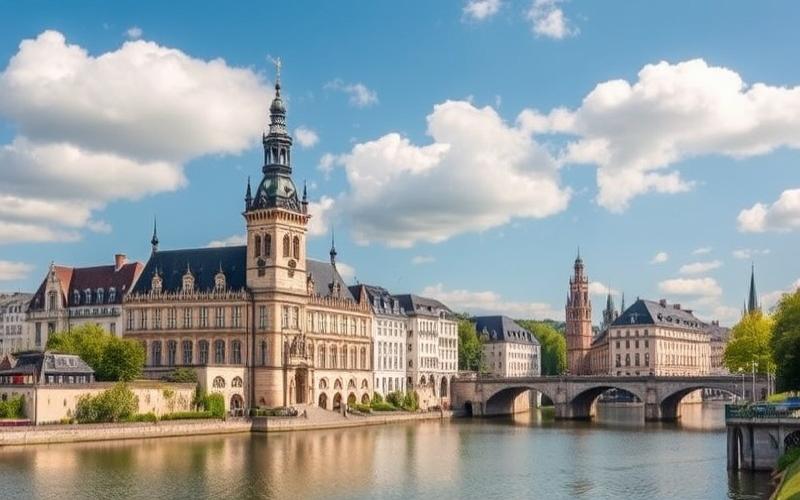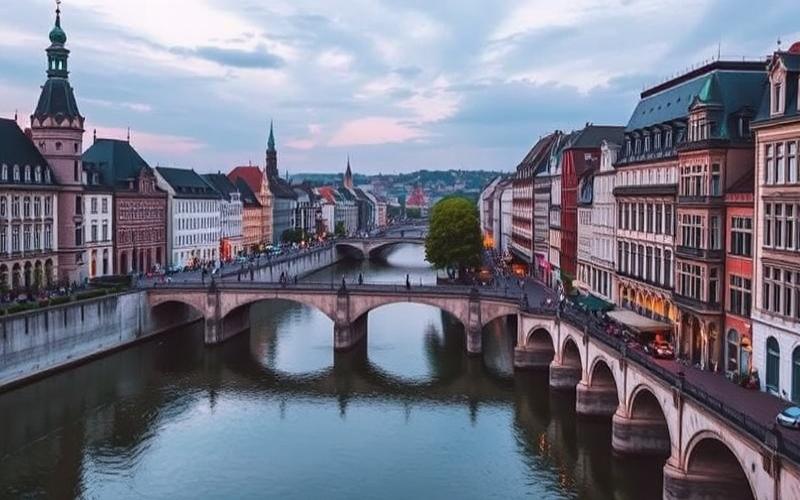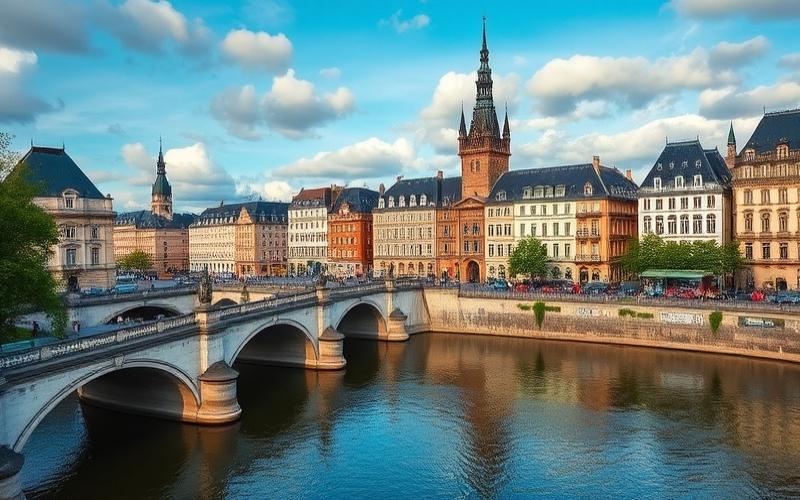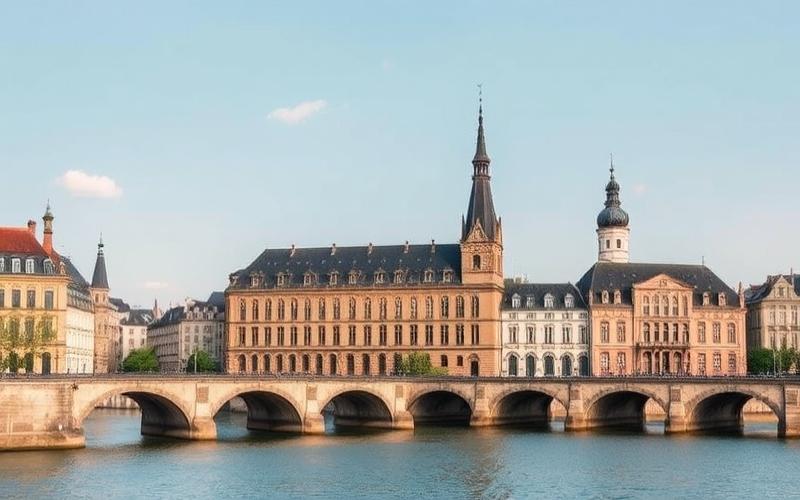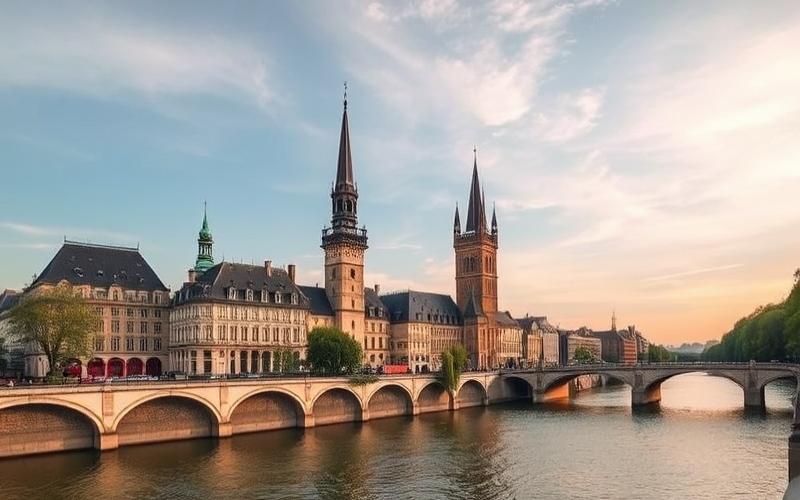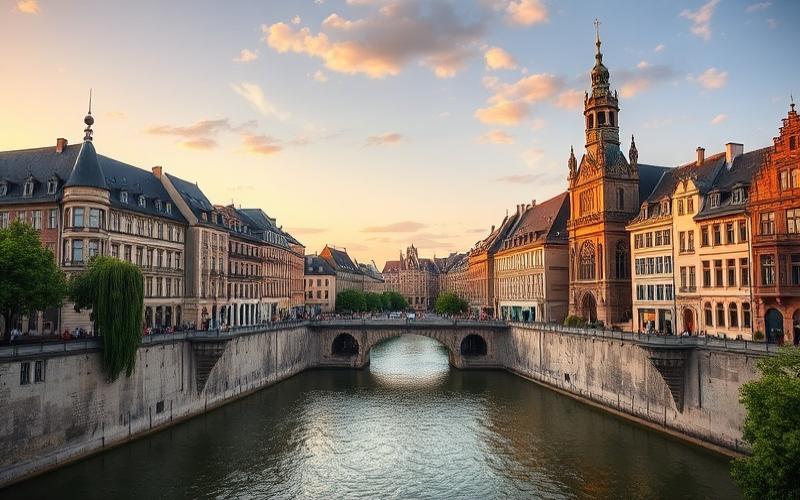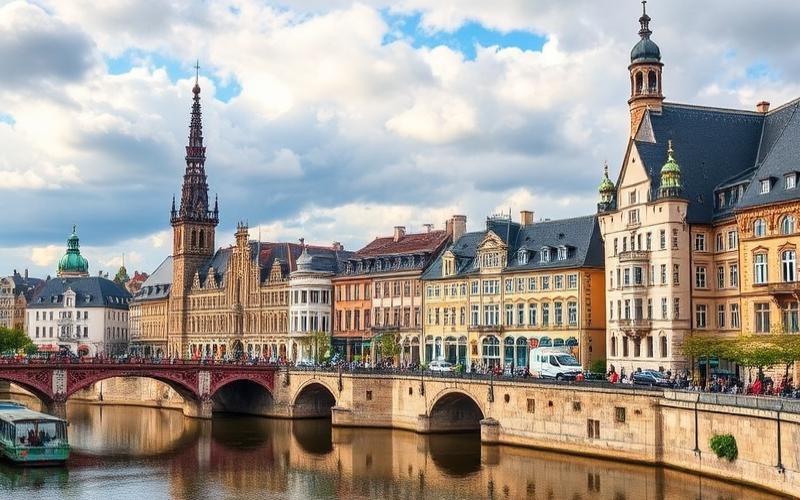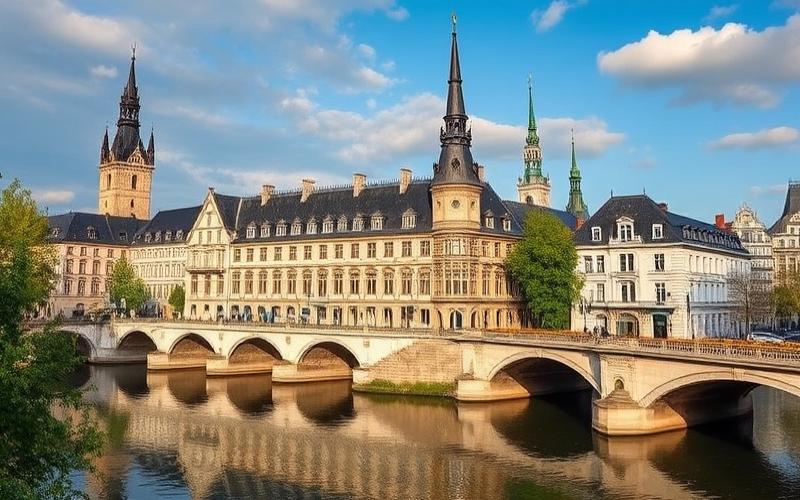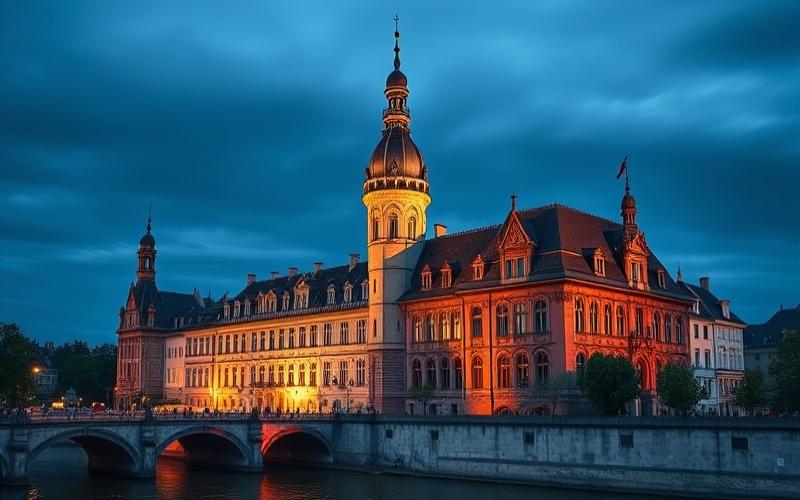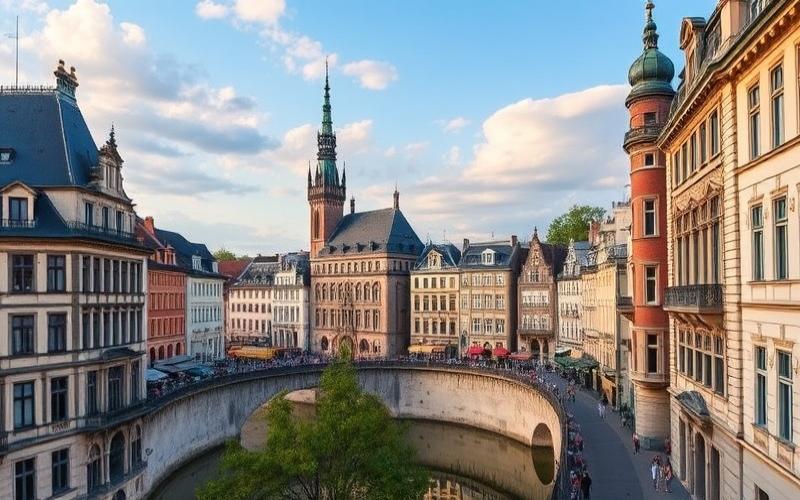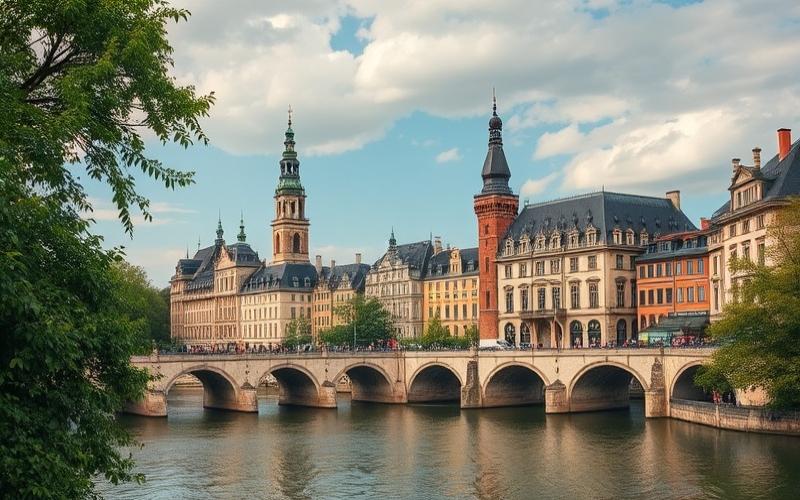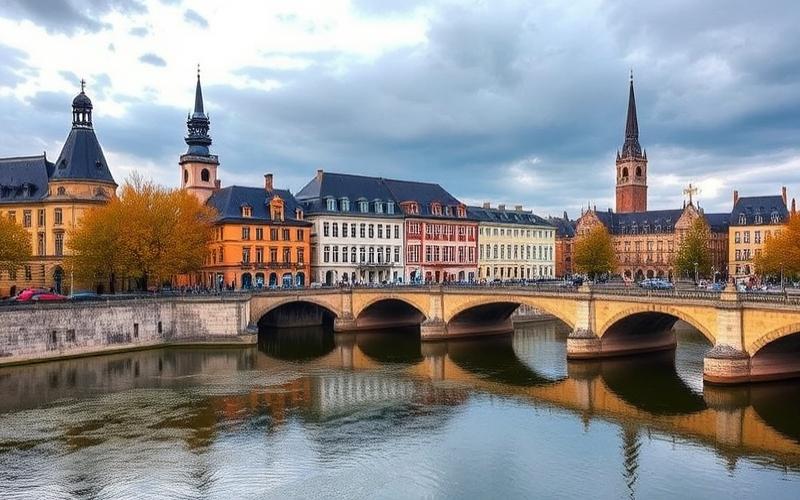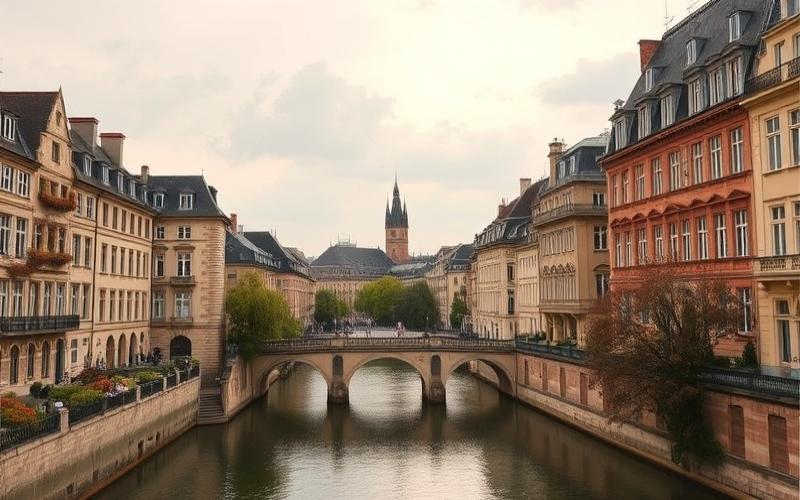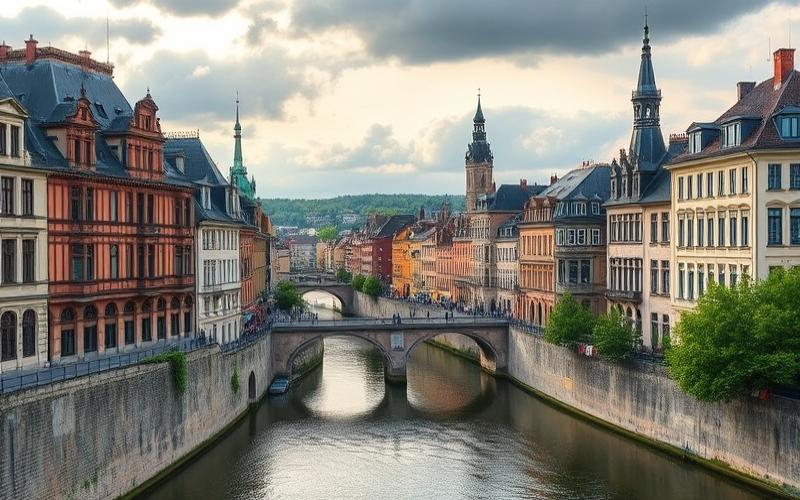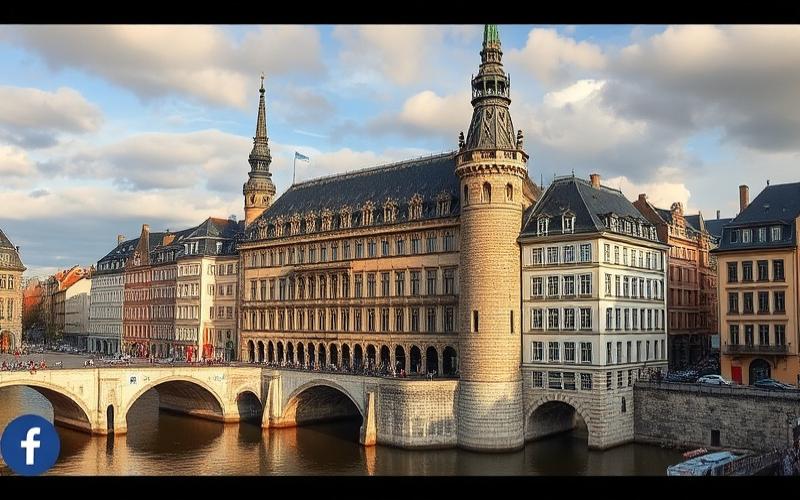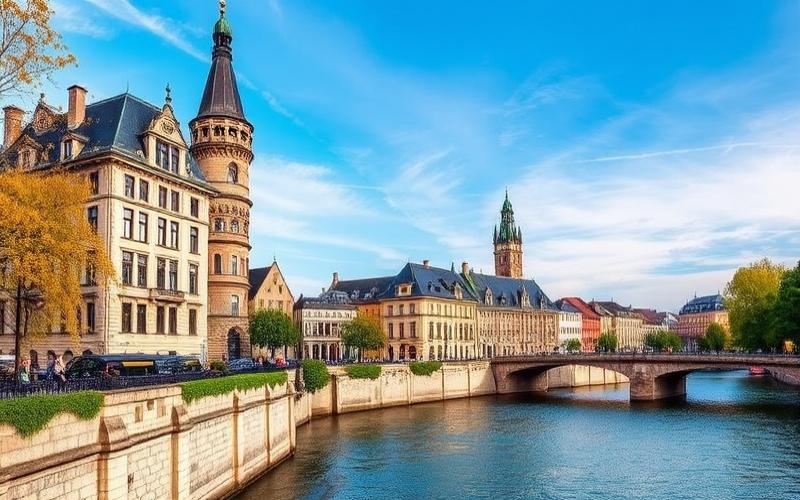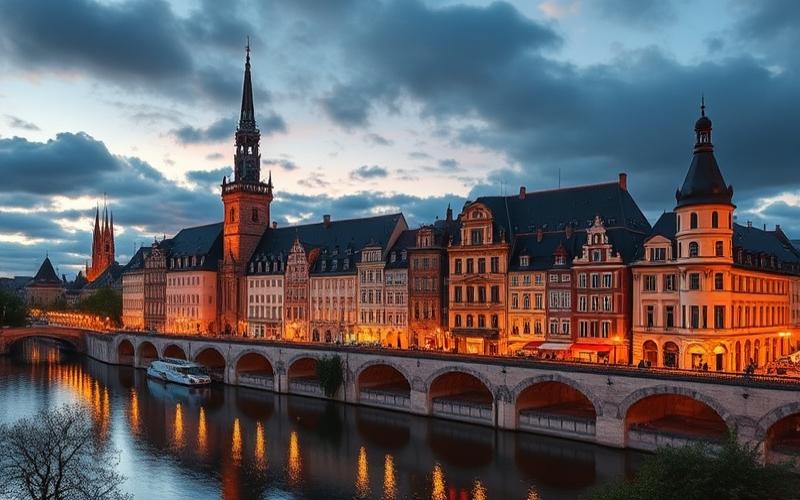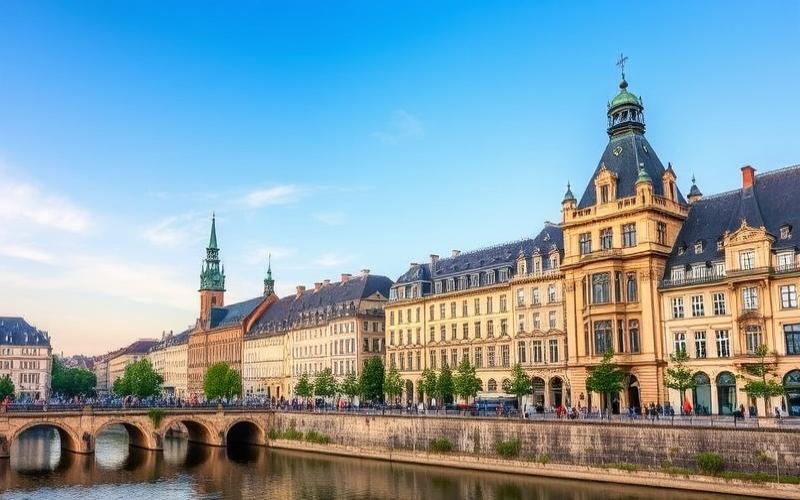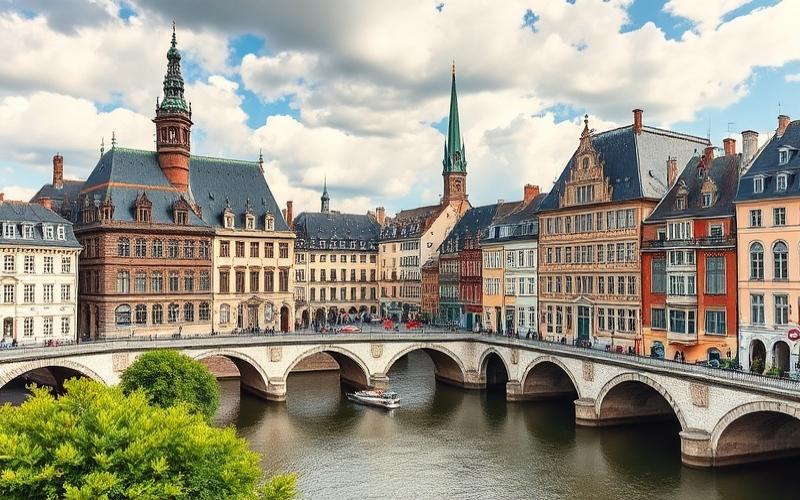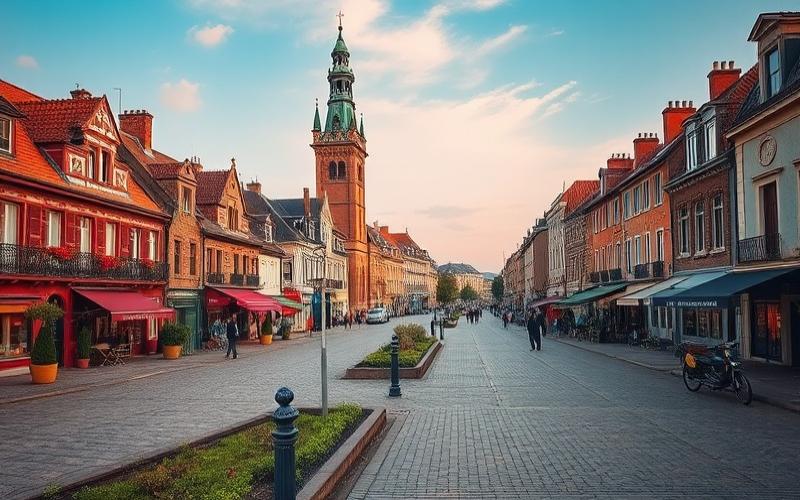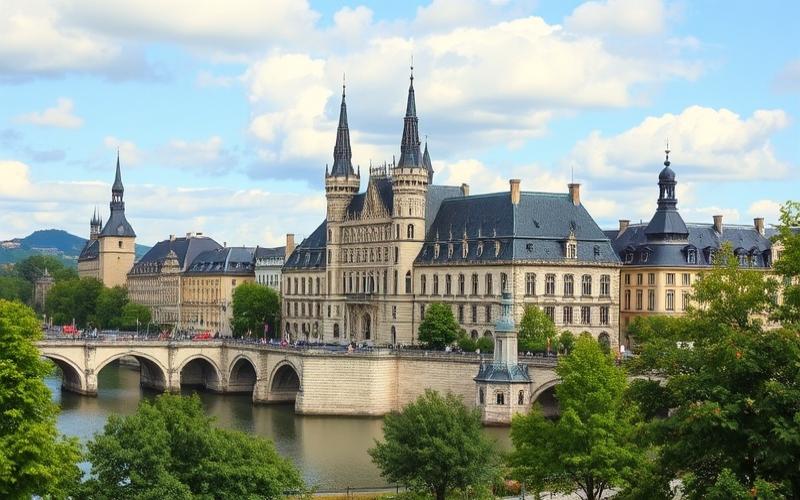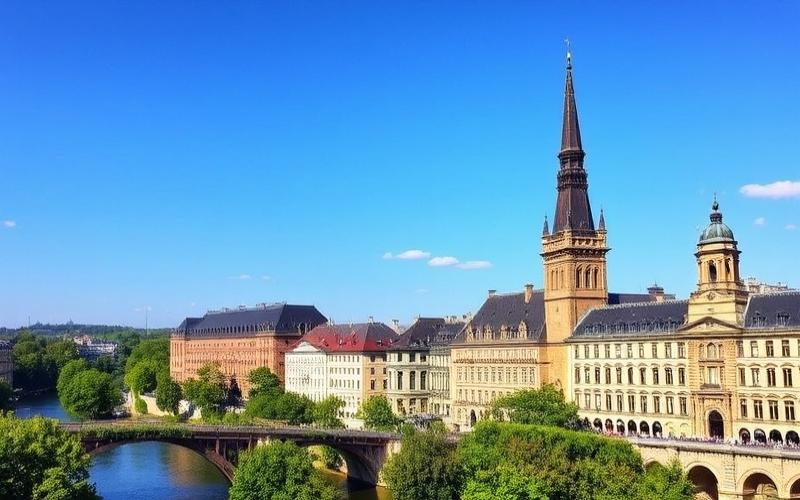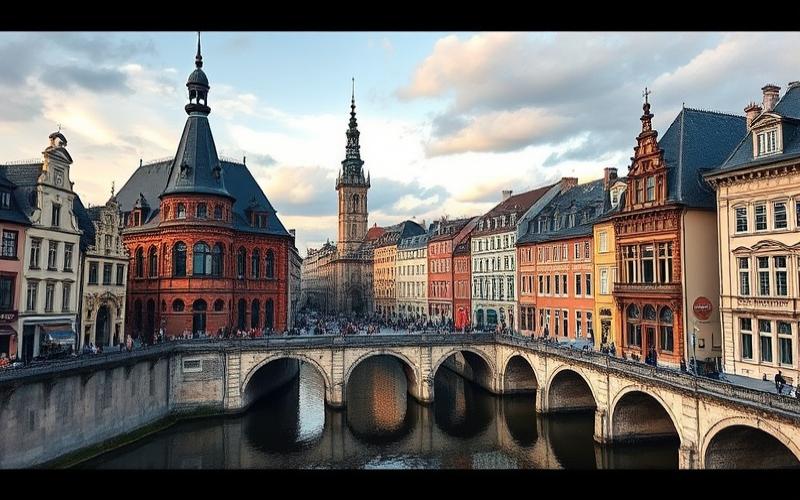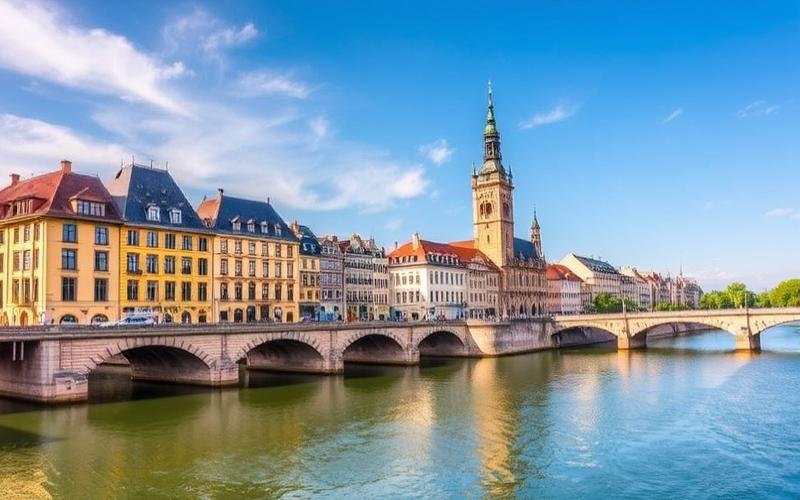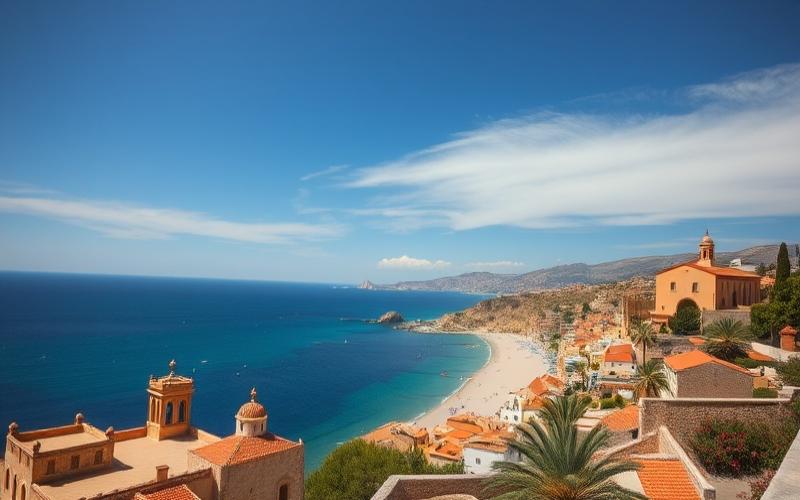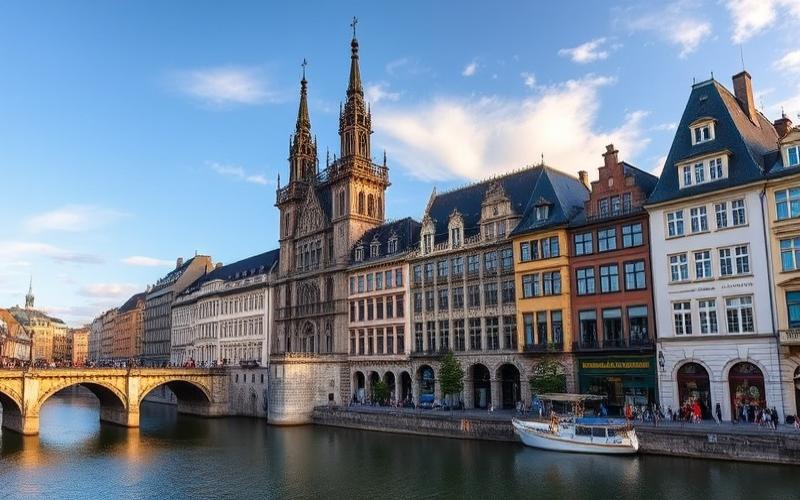
 Published on and written by Cyril Jarnias
Published on and written by Cyril Jarnias
The Grand Duchy of Luxembourg, a small country nestled in the heart of Europe, attracts a growing number of visitors each year, drawn by its historical heritage, preserved nature, and economic dynamism. This tourist influx is not without consequences for the local real estate market, creating both opportunities and challenges for residents and investors. Let’s dive into the heart of this complex reality and analyze the various facets of tourism’s impact on Luxembourg’s real estate.
Luxembourg’s Tourist Gems: Real Estate Hotspots
Luxembourg is brimming with tourist sites that attract not only visitors but also real estate investors. These areas become true magnets for the real estate market, sometimes radically transforming the urban and rural landscape.
Luxembourg City, a Blend of History and Modernity
Luxembourg City, a UNESCO World Heritage site, is undoubtedly the beating heart of tourism in the country. Its historic center, with its fortifications and picturesque neighborhoods like the Grund or Pfaffenthal, attracts millions of visitors each year. This popularity translates into strong real estate demand, both for housing and for commercial properties and hotels.
The historic neighborhoods of the capital are experiencing particularly intense real estate pressure. Old buildings are being renovated and transformed into luxury apartments or tourist accommodations, contributing to rising prices in these areas. At the same time, new real estate projects are emerging to meet the growing demand, such as the Kirchberg district, which combines offices, housing, and cultural infrastructure.
Little Switzerland, a Prized Natural Haven
The Mullerthal region, nicknamed Little Switzerland, is a top destination for nature and hiking enthusiasts. This popularity has a direct impact on the local real estate market. Country houses and rural cottages are particularly sought after, leading to price increases in picturesque villages like Echternach or Berdorf.
The appeal of this region is also reflected in the development of tourist complexes and second homes. These projects, while bringing economic dynamism, also raise questions about environmental preservation and the authenticity of the places.
The Luxembourg Moselle, Between Vineyards and Real Estate Opportunities
The Moselle Valley, renowned for its vineyards and idyllic setting, attracts many tourists seeking a change of scenery and gastronomy. This influx has a significant impact on the local real estate market. Old winemakers’ houses are in demand to be converted into cottages or second homes, contributing to rising prices in towns like Remich or Grevenmacher.
The development of wine tourism also encourages the emergence of new real estate projects, such as charming hotels or wine tourism complexes, gradually changing the region’s landscape.
Good to Know:
Tourist areas in Luxembourg are under strong real estate pressure, with growing demand for character homes and properties with high rental potential. This trend is particularly noticeable in the capital, the Mullerthal region, and the Moselle Valley.
Soaring Prices: When Tourism Heats Up the Real Estate Market
The tourist influx in Luxembourg has an undeniable impact on real estate prices, creating a complex dynamic that affects both local residents and investors.
A Widespread Price Increase in Tourist Areas
The regions most favored by tourists are experiencing a significant increase in real estate prices. In Luxembourg City, for example, the average price per square meter for an apartment has reached record highs, far exceeding 10,000 euros in some sought-after downtown neighborhoods. This rise is partly explained by the increased demand for housing for short-term rentals and second homes.
In the Mullerthal region, prices for single-family homes have also seen strong growth, with increases of up to 30% over the past five years in some localities. This trend is also observed in the Moselle Valley, where character properties are particularly sought after.
The Airbnb Effect: A New Deal for the Rental Market
The rise of short-term rental platforms like Airbnb has significantly impacted the Luxembourg real estate market. Many owners, attracted by the prospect of higher returns, choose to rent their properties to tourists rather than local residents. This trend is particularly marked in Luxembourg City, where the supply of housing for permanent residents is dwindling, contributing to rising rents.
In tourist areas like Mullerthal or the Moselle, the conversion of housing into tourist accommodations also has an impact on the local rental market, reducing the available supply for residents and pushing prices upward.
A Challenge for Local Residents’ Access to Housing
Rising real estate prices in tourist areas pose a major challenge for Luxembourg residents’ access to housing. Young families and middle-class households are often forced to move away from urban centers and the most attractive areas to find affordable housing.
This situation has led Luxembourg authorities to consider measures to regulate the market and preserve access to housing for local residents. Discussions are underway to limit the number of short-term rentals in certain areas and to encourage the construction of affordable housing.
Good to Know:
Real estate price increases in Luxembourg’s tourist areas can reach up to 30% over five years in some localities. This trend is particularly marked in Luxembourg City, where the average price per square meter for an apartment often exceeds 10,000 euros in the most sought-after neighborhoods.
Tourist Rental Investment: A Boon for Savvy Owners
The rise of tourism in Luxembourg has opened new perspectives for real estate investors, particularly in the field of seasonal rentals and tourist accommodations. This trend, while offering interesting opportunities, is not without raising certain questions.
Seasonal Rentals: A Booming Market
The development of online rental platforms has significantly facilitated the rental of real estate properties for short stays. In Luxembourg City, for example, the number of listings on Airbnb has seen exponential growth in recent years, with high occupancy rates during the peak tourist season.
Owners who opt for this type of rental can expect higher returns than traditional rentals, especially in highly touristic areas. In the historic center of Luxembourg City or in towns like Echternach, it is not uncommon to see profitability rates exceeding 6% for well-managed seasonal rentals.
The Emergence of New Types of Tourist Accommodations
Beyond simply renting apartments or houses, we are seeing the emergence of new tourist accommodation concepts in Luxembourg. Innovative projects are appearing, such as eco-lodges in the Mullerthal region or unique accommodations in the Moselle vineyards.
These investments, often led by hotel groups or private investors, contribute to diversifying the tourist accommodation offer while enhancing the country’s natural and cultural heritage. They also represent interesting opportunities for investors seeking high-value-added projects.
The Challenges of Tourist Rental Management
While investing in tourist rentals can be lucrative, it also comes with its share of challenges. The daily management of short-term rentals requires a considerable investment of time and energy: welcoming travelers, cleaning, maintenance, managing reservations, etc.
Faced with these constraints, many owners turn to specialized management companies. These firms, whose numbers have increased significantly in Luxembourg in recent years, take care of all rental management in exchange for a commission on the generated income.
Towards Regulation of the Tourist Rental Market?
The rise of tourist rentals raises questions about its impact on the traditional housing market and neighborhood life. Some European cities have already implemented strict regulations to govern this practice, and Luxembourg could follow this path.
Discussions are underway at the national and local levels to establish an appropriate regulatory framework. Among the measures being considered are limiting the number of rental nights allowed per year for primary residences, or requiring a license for short-term rentals.
Good to Know:
Tourist rental investment in Luxembourg can offer attractive returns, sometimes exceeding 6% in the most sought-after areas. However, this activity requires rigorous management and could be subject to increased regulation in the coming years.
Conclusion: A Delicate Balance Between Opportunities and Preservation
The impact of tourism on the Luxembourg real estate market is undeniable and multifaceted. While it offers interesting opportunities for investors and contributes to the country’s economic dynamism, it also raises significant challenges in terms of access to housing for local residents and the preservation of the authenticity of places.
Luxembourg authorities face a major challenge: finding a balance between tourist development, a source of wealth for the country, and the need to guarantee affordable housing access for all. The coming years will be crucial for defining a sustainable real estate and tourism development model, capable of reconciling the interests of all stakeholders.
In this context, real estate investors will need to remain attentive to regulatory developments and market trends to adapt their strategies. As for Luxembourg residents, they may need to rethink their relationship with property and explore new forms of housing in the face of increasing pressure on the real estate market.
One thing is certain: Luxembourg, with its tourist and economic attractiveness, will continue to offer an exciting observation ground for the interactions between tourism and the real estate market in the years to come.
Disclaimer: The information provided on this website is for informational purposes only and does not constitute financial, legal, or professional advice. We encourage you to consult qualified experts before making any investment, real estate, or expatriation decisions. Although we strive to maintain up-to-date and accurate information, we do not guarantee the completeness, accuracy, or timeliness of the proposed content. As investment and expatriation involve risks, we disclaim any liability for potential losses or damages arising from the use of this site. Your use of this site confirms your acceptance of these terms and your understanding of the associated risks.


